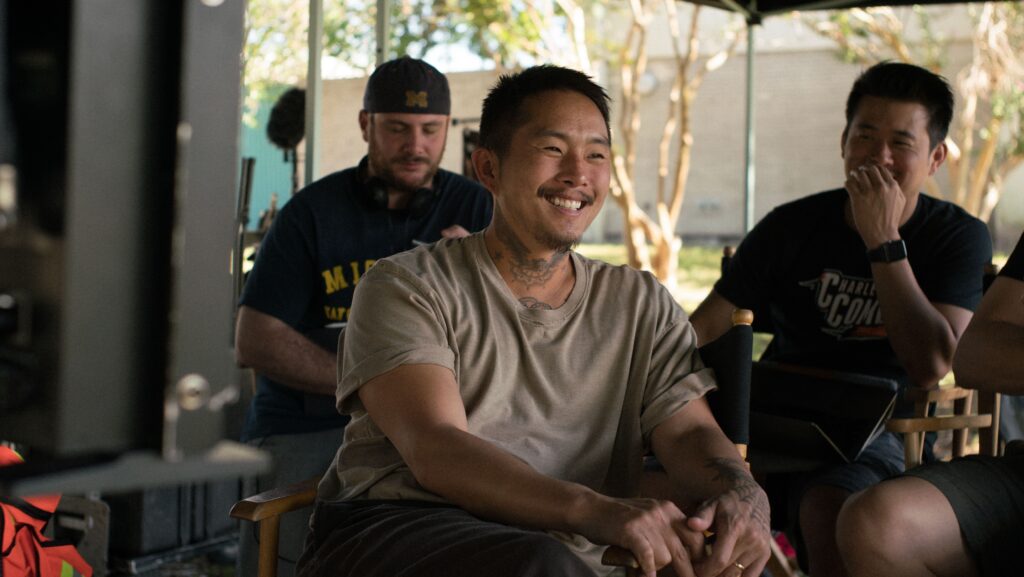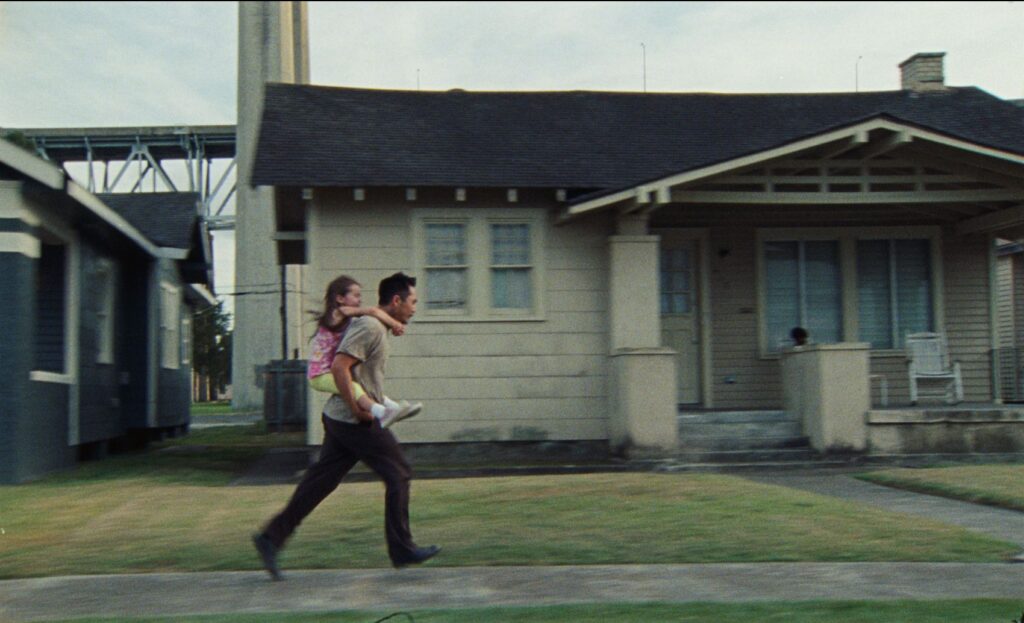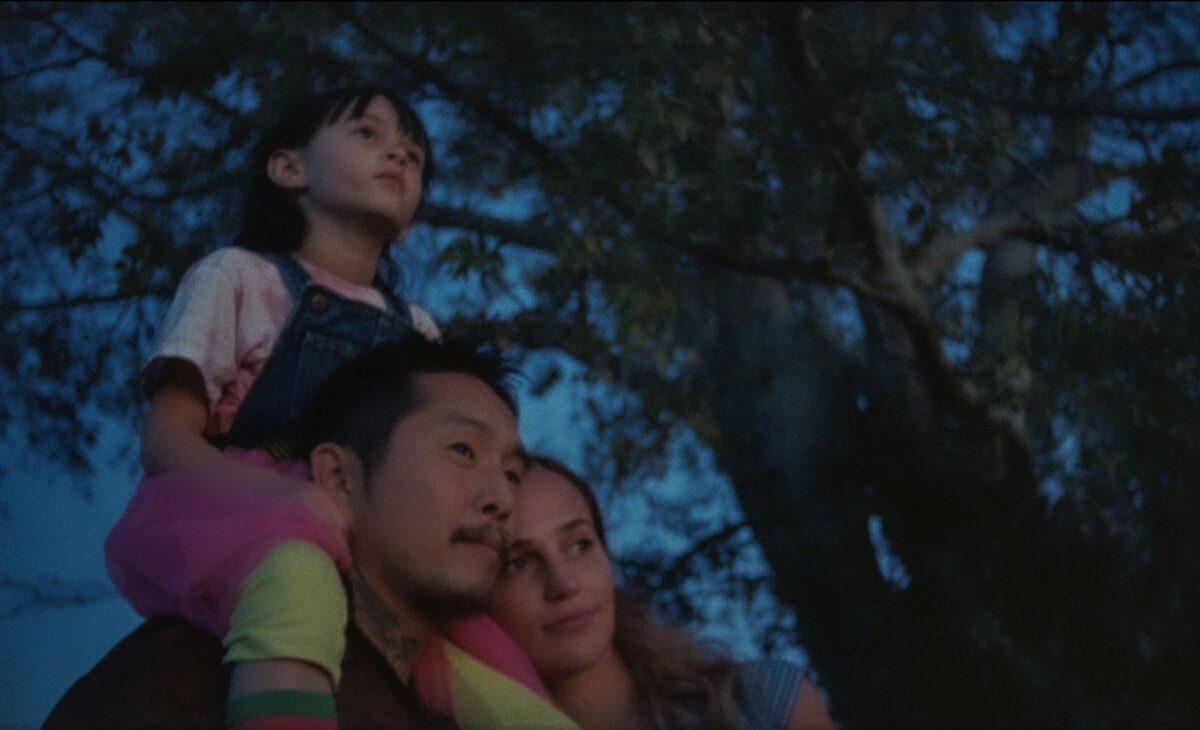Asian American filmmaker Justin Chon’s latest film – Blue Bayou – opens today in theatres nationwide.
Blue Bayou tells the story of Korean American adoptee Antonio LeBlanc as he faces a deportation order by ICE that threatens to rip apart his family and expel him from the only home he has ever known.
Earlier this week, I had a chance to sit down with writer-director Justin Chon, who also stars as Antonio in the film. The following is a transcript of our conversation. It has been edited for length and clarity.
JENN: I saw Blue Bayou over the weekend with my husband and it was incredible — truly an amazing film. So first of all, I just want to say kudos to you for making it.
As you know, there are roughly 120,000 transnational Korean adoptees in the United States, but Blue Bayou is seemingly one of the first American dramatic films to tackle this subject. Why do you think that this story — which seems so integral to the Asian American experience — is so overlooked in film and what inspired you to tell this story in Blue Bayou?
JUSTIN: I think for that reason — because it’s overlooked. I know certain adoptees aren’t going to like that I’m telling this story because I’m not an adoptee, and so I’ll never know what it’s like to grow up as an adoptee. I understand that and I honor that. But, at the same time: how long are we going to wait? When is there going to be a substantial story about an Asian American adoptee — but, specifically also a Korean American — because we all know that the idea of international adoption started in South Korea.

I grew up with Korean American adoptees as friends, and their stories have always been a part of my sphere. When I started hearing that adoptees were being deported, I just could not believe that US citizens could adopt a child from overseas — and the child has no choice or not as to whether they go — and the US government acknowledges the adoption as legal; but then, when those adoptees become adults twenty or thirty years later, the government decides that they’re not US citizens. It makes zero sense to me.
I’ve built this platform in which I’ve become more of a writer-director and created this avenue for me to make films. It just felt important and like it was my responsibility to put into narrative form this issue of adoptees facing deportation, and to bring awareness to this issue. I’m truly in service to the adoptee community — their stories need to be heard and told.
I’m truly in service to the adoptee community – their stories need to be heard and told.
Justin Chon
It’s currently estimated that roughly 20% of Korean adult transnational adoptees are currently undocumented and vulnerable to deportation. I love how you explicitly connect Blue Bayou to the political movement around transnational adoptee rights. You say you weren’t sure how the adoptee community might feel about the film. Did you connect with or draw inspiration from activists or the adoptees you grew up with in trying to tell this story? Can you talk a bit about the process of connecting with the adoptee community for this film?
Absolutely. I had five different adoptee consultants, and they read every draft of the film. One particular woman who was really there for me — like I could call her at any time of the day — really helped to talk me off of the ledge, because to be frank it was pretty nerve-wracking to tackle this subject. I really wanted to do a good job and be authentic to their experiences.
There’s a lot of things that I learned and integrated into the film from my conversations with them, and when they would read drafts and tell me something wasn’t very accurate. I also spoke to an immigration lawyer to make sure I got the legal issues represented. But as you saw in the film, I didn’t want it to get too bloated with the legal aspect of things. Instead, I really wanted to make the story human, and bring empathy to adoptees who are going through this.
Some of the stuff that I included in the film that I learned from speaking to adoptees was that having your own child as an adoptee is a huge deal. It’s a huge moment in your life because finally someone is blood-related to you that you’re holding in your arms. It can be a very emotional moment. Also, there’s this misconception that an adoptee’s parents didn’t want them or wanted to commit violence against them; in reality, it’s more circumstantial and it’s something that adoptees don’t take very lightly. For a lot of these people, it’s because they had no choice and I put that in the film by having Antonio say, “she gave me up but she kept me as long as she could.”
I tried my best. I’m sure some people won’t be the happiest, but at the end of the day I hope that some adoptees who watch the film can relate to it and feel a certain level of authenticity to their story.

There’s a lot of conversation right now about immigration policy and immigration reform, and I think Blue Bayou gives us another facet of how ICE impacts undocumented immigrants by telling the story of a different kind of undocumented person.
Absolutely what you’re saying! These people are undocumented in the sense that they don’t even know they’re undocumented. It’s a completely different kind of experience. Immigration in this country tends to be spoken about primarily as an issue of the US-Mexico border, whereas the issue is actually so wide-reaching. Here we’re talking about adoptees who were brought by US citizens and who don’t even know that their parents didn’t file the proper paperwork.
Right, and sometimes the adoptive parents don’t even realize. They may think that they navigated the process correctly, until adoptees find out as adults that they were never properly naturalized. There’s legislation that provides protection to transnational adoptees who arrived to the US after 2000, but as you talk about at the end of the film, this leaves out adult adoptees like your character, Antonio.
And what people don’t realize is that the process of naturalizing as an adoptee is pretty intensive. There’s a lot of paperwork that needs to be correctly filed, and not every adoptive parent wants to go through that. Further, a lot of these parents think that because they are American and that they legally adopted a child, this grants the adoptee automatic citizenship. They don’t realize the amount of separate paperwork that goes into naturalizing their adopted child. And people don’t talk about the many children who were brought to this country as adoptees then given up into the foster care system. For these adoptees, there’s no chance. These kinds of adoptive parents aren’t going to take the time to make sure those adoptee children are naturalized.
In cinema, Asians are constantly shown as the do-gooders and the nerds, but that does not accurately portray the people I grew up with. Meanwhile, who are we not seeing in cinema in the Asian American narrative-scape?
Justin Chon
One of the things I found striking about Blue Bayou is your decision to situate the film in Louisiana and your choice to make Antonio Louisianan and from New Orleans. There aren’t a lot of films that tackle Asian Americans from the South, who are low-income, or who are formerly-incarcerated. All of these decisions feel really inspired when it comes to Asian American film. Can you talk about all these decisions you made when it comes to creating the character of Antonio?
I grew up in the middle class, but my dad’s business was in Compton, and so every week I was going to Compton. Luckily my dad could do okay and we could live in a middle-class neighborhood, but his business was in the hood. I grew up with a lot of kids from Garden Grove and Anaheim, and at the time these were not the best neighborhoods.
In cinema, Asians are constantly shown as the do-gooders and the nerds, but that does not accurately portray the people I grew up with. Meanwhile, who are we not seeing in cinema in the Asian American narrative-scape? I know plenty of low-income Asian American families who have had a tough time trying to make it, but they’re not shown in cinema.
I have friends from New Orleans who are Vietnamese and I dated a girl from New Orleans, so I spent a lot of time on the West Bank. The two shows that I commend that have tried to show the Vietnamese population in New Orleans is Treme and Ava DuVernay’s Queen Sugar. The main reason to set Blue Bayou in New Orleans was that I knew I wanted a Vietnamese storyline in this film, and a woman who was dying to be a sort of a mentor figure to Antonio. And, I also wanted to see an Asian American with a Southern accent and to normalize that we exist in the South. We’re in all corners of the United States.
Across all of your films, you touch on this idea of interconnectedness across Asian Americans of all different backgrounds, and you also situate your Asian American characters in this larger multiracial community. You do that in both Gook and Blue Bayou, for example.
Can you talk a little bit about what inspires you to revisit these ideas of community and interconnectedness, because I think that’s a really powerful theme?
Yeah it’s also in Ms. Purple, which is very much a Korean story but also a Chicano story. It’s because one of my purposes in storytelling is to show how we can co-exist in this country. In the end, we’ve just got to figure out how we can all get along.
One of my purposes in storytelling is to show how we can co-exist in this country. In the end, we’ve just got to figure out how we can all get along.
Justin Chon
Thank you so, so much for taking the time to chat today. As far as I’m concerned, you are the next great Asian American filmmaker and I am really looking forward to your next project.
Thank you!
Blue Bayou was an official selection of the 2021 Cannes Film Festival, and opens today (September 17) in theaters throughout the United States.

